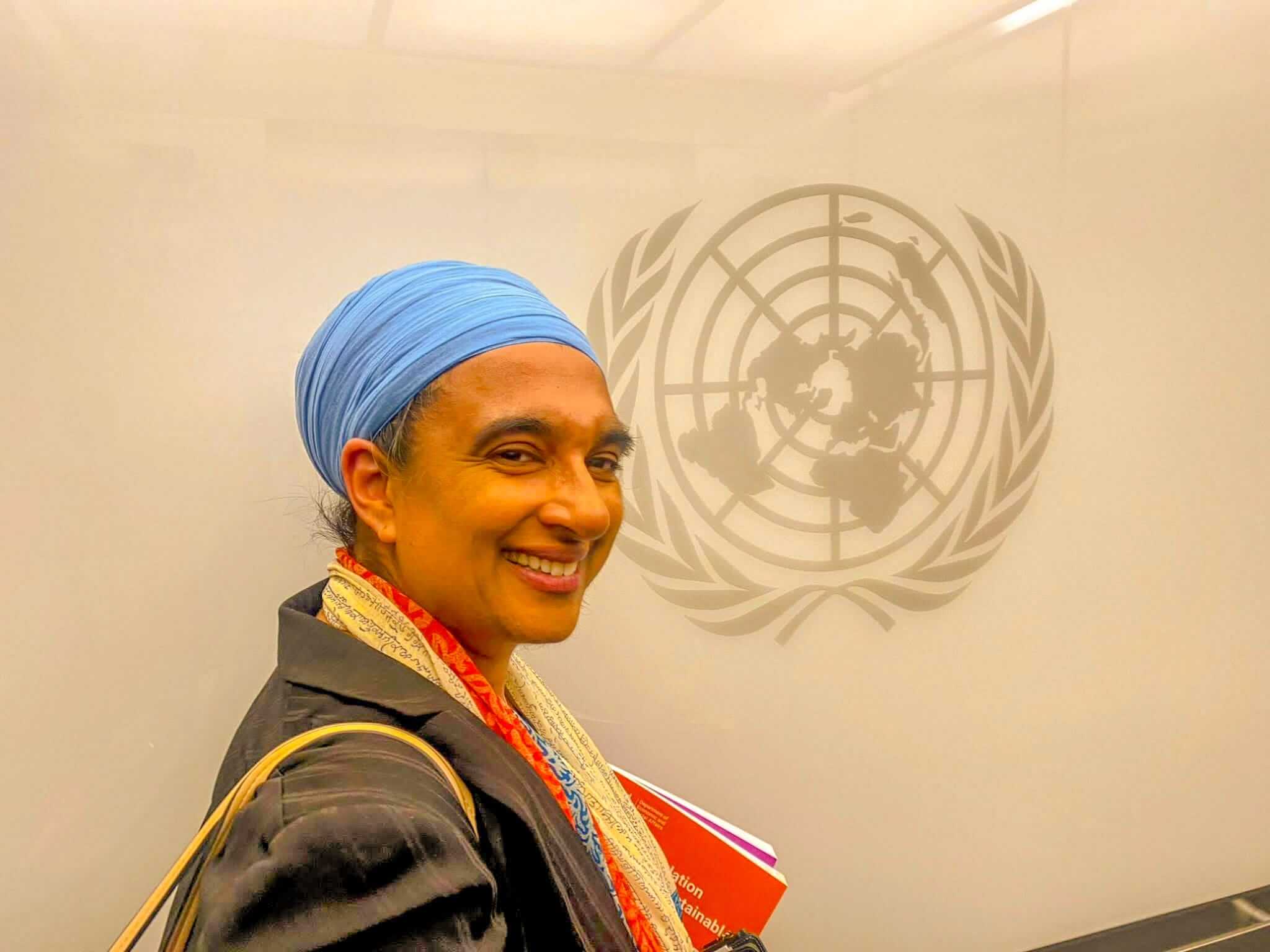Rajnarind Kaur, adjunct professor in the Leon Hess Business School, recently addressed the importance of mother tongue education and the advantages of multi-lingual capabilities at the United Nations Commission on Population and Development 56th Session. The presentation, “Pluriversal Epistemologies to Support Sustainable Development” was organized by the Sikh Human Rights Group, an NGO with UN ECOSOC status, and focused on promoting a plural, inclusive and sensitive education to help individual development in diverse and sensitive communities for the benefit of all.
“As population numbers grow and the demography increasingly becomes heterogeneous and diverse, it is vital that education is also plural, integrates, and assists individual development in diverse communities, and sensitive to benefit all,” Kaur said.
During the session, Kaur addressed the questions: Is it possible for individuals to feel a sense of empowerment and communicate without knowing the same language? Is there a positive correlation between increased intelligence and the fluency of being proficient in more than one language? How can we use innovative technology to bridge the communication gap across cultures, societies, countries, etc.?
Additionally, she provided examples and stories where language played a pivotal role in her corporate success, inspiring pride within children, spanning the distances across countries, in educating many through technology, and empowering individuals to tell their stories, their history, and leave a legacy for others.

